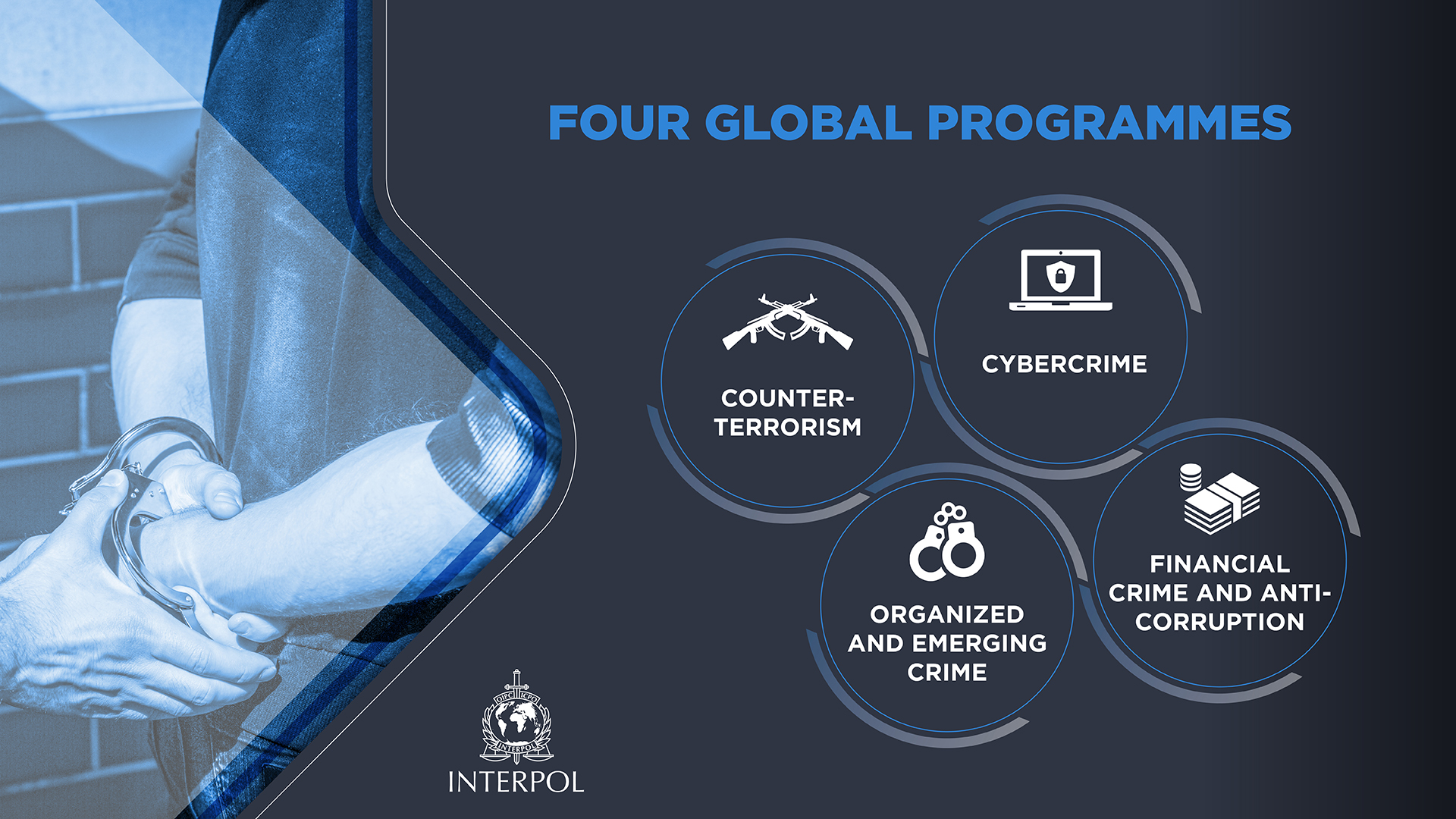Interpol’s Mission and Function
The International Criminal Police Organization takes the lead in the fight against transnational crime through strengthened international cooperation between various police agencies worldwide. With its membership spanning almost every country on earth, Interpol takes up diversified crimes across borders that require coordinated action on a global scale. While Interpol plays a leading role in dealing with such contemporary problems as terrorism, human trafficking, cybercrime, and financial fraud, Interpol does not have the authority to arrest criminals in any member country without the sanction of national authorities.
Interpol also helps its member nations with training and expert services on investigating such crimes. It also maintains a database of all fugitives with personal information, such as names, fingerprints, and passport information, to assist in efforts toward global law enforcement. We invite you to read about some of the most prominent crimes. From international terrorism and human trafficking to cybercrime and financial fraud, Interpol is actively involved in investigating and bringing a halt to crimes that affect countries worldwide.
Crime Prevention and Investigation
Interpol actively assists member countries in preventing and investigating various types of crime. By providing access to databases and intelligence networks, Interpol enables law enforcement authorities to exchange critical information, identify criminals, and coordinate criminal investigations. This collaborative approach helps uncover hidden connections between crimes committed in different jurisdictions and contributes to the overall fight against transnational criminal activities.
Terrorism and Extremist Activities
In response to the global threat of terrorism, Interpol plays a crucial role in counterterrorism efforts, supporting member countries in sharing intelligence, coordinating investigations, and apprehending individuals involved in terrorist activities. By issuing Red Notices, Interpol helps locate and arrest fugitives involved in terrorism-related offenses, contributing to the disruption of terrorist networks worldwide.
Trafficking in Persons and Smuggling
Interpol recognizes the grave impact of human trafficking and smuggling on society. The organization works tirelessly to combat these crimes, facilitating cooperation between countries to identify and dismantle elaborate criminal networks. Interpol provides assistance through various programs, including the Stolen and Lost Travel Documents database, which aims to detect and prevent human trafficking. Additionally, through capacity-building initiatives, Interpol equips law enforcement personnel with the necessary tools to combat these offenses effectively.
Environmental Crimes
Interpol acknowledges the harmful effects of environmental crimes, such as illegal wildlife trade, pollution, and illegal fishing, on global sustainability. In collaboration with member countries, Interpol undertakes initiatives to combat environmental crimes, sharing intelligence, coordinating actions, and assisting in investigations to address these grave offenses effectively.
Cybercrime
Cybercrime evolved with technological development, where criminals exploited these digital platforms. Well-equipped with expert computer knowledge and system security, cybercriminals are keen on changing their approach to crime commitment, making its detection and bringing into custody very hard.
Such operations involve malware, phishing scams, and ransomware, as well as website spoofing. One of the new trends that have evolved is cryptojacking, which involves remotely breaking into systems to mine cryptocurrency using hijacked resources. Cybercrime does not respect any boundaries and hence becomes a global affliction to all industries, businesses, people, and governments. In this effect, Interpol allows for the sharing of intelligence among member countries and provides them with related training in efforts to increase their capacity on effective detection, investigation, and response towards cybercriminal activities.
Conclusion
Interpol’s overarching responsibility is to promote collaborative efforts among law enforcement agencies across the globe. By focusing on crime prevention, counterterrorism, cybercrime, human trafficking, environmental crimes, and other areas, Interpol plays an indispensable role in maintaining global security. Through its various programs, tools, and initiatives, Interpol continues to enhance international cooperation and strengthen the ability of law enforcement agencies worldwide to combat sophisticated and transnational criminal activities.




